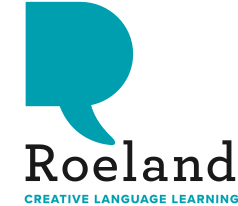Exiting your comfort zone leads you to the coolest adventures!
Even lifelong Roeland volunteer (in various capacities) Joke Baele (34) quits her comfort zone on occasion. She has experience in “the French world” because of her studies and background as a French teacher. But she also teamed up with a Dutch camp as a volunteer.
Easily won over
“I met some people from the Dutch projects at a volunteer meeting at the Roeland head office in 2022. I quickly noticed a shared enthusiasm. Dutch Head of Projects Tom easily convinced me to volunteer as a teacher for a Dutch camp during the Easter school recess”, Joke says.
“That first experience really worked for me. That is why I volunteered again for a Dutch project in Ghent last summer. The volunteers banded together and became close friends because of that Easter camp. It is always exciting to start with a new project after many years, but boy am I glad I took that leap!”, Joke prides herself.
But why, after so many years?
“People ask me why I still go to camp, being a 34-year-old. The answer is short and simple: going to camp is an enrichment in so many ways”, Joke says determined.
“I still learn a lot about how to make a foreign language enjoyable and fun, which activities work out and which do not. It is a privilege to watch every participant’s personal evolution: the progress they make when it comes to language skills, but also their emotional development.”
“Besides, it is also an ideal opportunity for me as a teacher to find another way to deal with young people. Teaching my native language instead of French turned out to be a bit challenging for me also. I learned a lot about multilingualism and the Dutch language itself.”
At camp in Nieuwenbosch: from language games to a joined cooking effort.
“In the middle of the city the group created a nice little bubble for itself. A place for relaxation where we played, learned, and enjoyed ourselves with a variety of games and activities. It had been a while since I exercised the part of a language teacher at camp, but I thoroughly enjoyed creating a splendid vibe together with my students. We developed a set of particular habits to start off the day, like using a smiley to express our feelings, or design a pamphlet to address the theme of the day, and more…”
“A Dutch camp student group has widespread origins, which is a tremendous enrichment when it comes to different language learning activities. For instance, a project I worked out with my group had ‘food’ as a central theme. We discussed a variety of ingredients, completely unknown to some of my students. The children explained to each other the type of food, how to prepare it and what it meant culturally. I sat and watched them and could not help smiling.”
“We concluded the project with a trip to the supermarket and then we prepared dessert for the entire group. A little field trip, but truly educational for the students: where to look for the ingredients, asking the store employees questions, … Afterwards we created fruit skewers in cooperation with our kitchen team. Our cook Karl showed the children how to peel and cut all kinds of fruit. That is also what it means to go to camp! Students learn a new language and so much more when they are at camp, and that is really gratifying in my opinion.”
Great moments to remember
“If someone asks me about my greatest moment at camp, it will take some time to produce an answer. It is everything combined: a great vibe to begin with, an ensuing sense of coherence… you add it all up to determine the score of a camp week. There’s also this feeling of trust within the group: having a little chat before going to sleep, hanging out and cheering, going all-in for a suggested project, having a loud singalong with a K3 or Romeo’s song when you are on the beach in Blankenberge in spite of some bad weather… there’s that, and much more!”
“At the end of the week, when people say goodbye with a hug, a text or even a tear, the feeling that this camp week really meant something embraces you like a warm blanket. Students entrust you with their worries and they do so in Dutch, which is an unfamiliar language to them. Having the opportunity to be a part of that generates a giant energy boost and a deep feeling of gratitude”, Joke says emotively. “Seeing our participants having fun like that while learning a new language without even realizing it, that is what makes a camp successful.”
